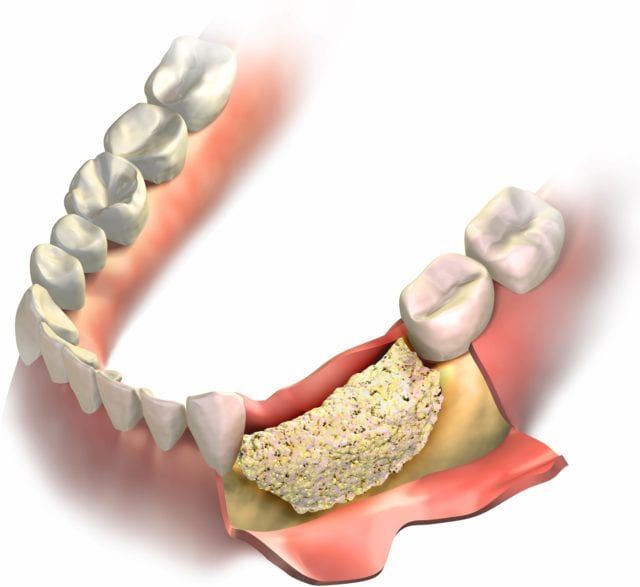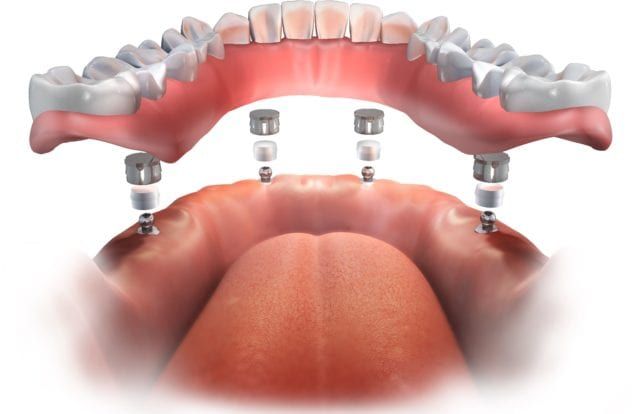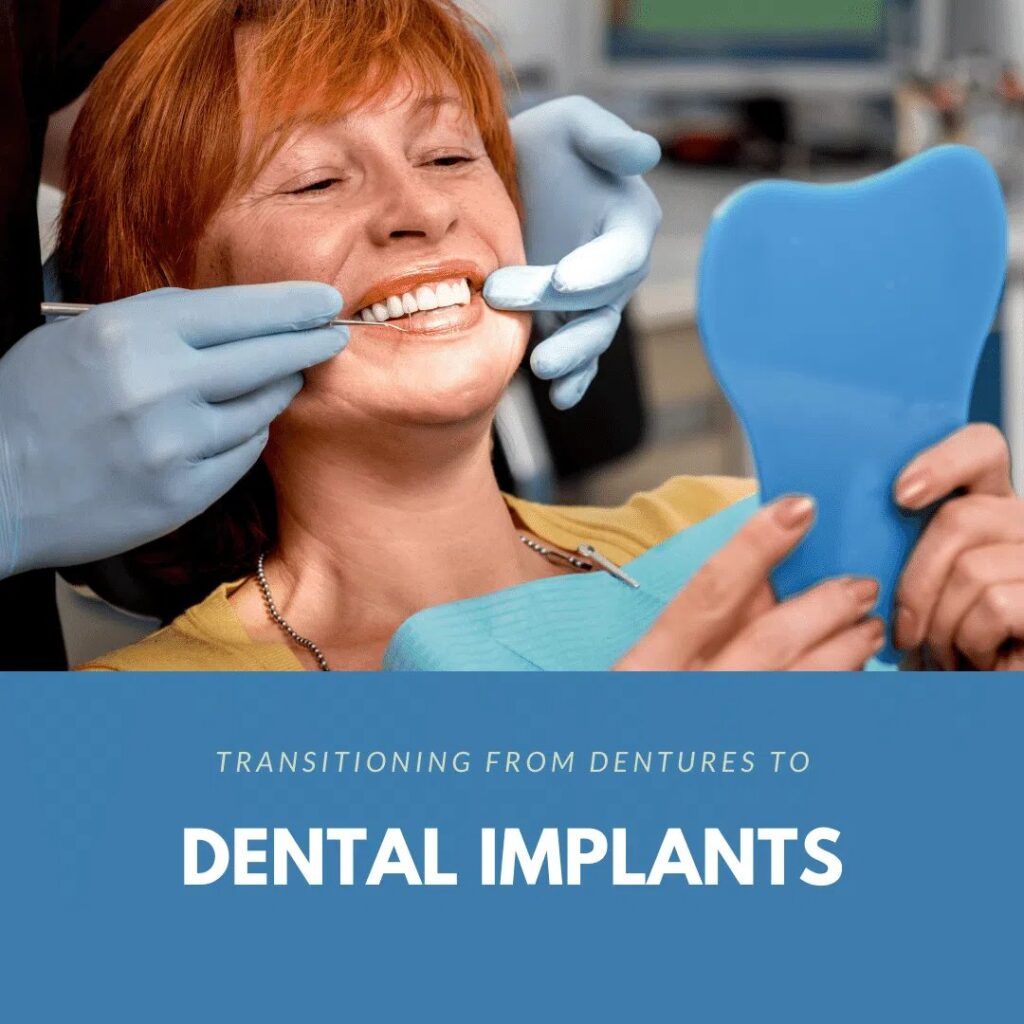Do you have dentures? Are you tired of them falling out all the time when you eat or speak? Do you wish that they would stop irritating your gums every time they shift from slipping? While many people elect to get dentures to replace missing teeth because they think it is easier than getting dental implants, most people eventually regret this decision and decide to make the transition from dentures to dental implants. If you currently have dentures and are fed up, then here are some things you will want to know about transitioning from dentures to dental implants:
Why you should replace your dentures with dental implants:
There are many reasons why it is beneficial to trade in your dentures for dental implants. Some of the most popular reasons include:
- Dentures cannot prevent bone loss from missing teeth, while dental implants can
- As a result of bone loss, dentures will continually need to be reshaped or replaced in order to fit properly and comfortably. Dental implants maintain bone mass and rarely need to be replaced.
- Dentures cost more money over time since they need constant maintenance and/or replacements
- Dental implants are secure, don’t rub the gums, and can help you eat foods that dentures can’t
- Dental implants have a natural appearance and don’t look like “fake teeth”
Ideal candidates for transitioning from dentures to dental implants:
You may be wondering if you are an ideal candidate for dental implants if you have already been using dentures. After all, a key qualification for dental implants is that you must have enough bone mass to support a dental implant and missing teeth lead to deterioration of the jawbone. Even if you don’t have enough bone mass, there are a variety of options available.

One option for those who are lacking proper bone mass are bone grafts. Bone grafting procedures place bone material in areas of low bone mass. As these areas heal, new bone growth helps to strengthen the bone and add mass. Bone grafts are a highly effective and popular method for placing dental implants in individuals with low bone mass. Another option is to have zygomatic implants placed. Zygomatic implants are supported by the facial zygomatic bones, rather than the jawbones. Therefore, they bypass the jawbones altogether, so a lack of bone mass no longer matters.
Ultimately, the only way to determine if you are an ideal candidate for dental implants is to schedule a consultation with your local dental implant dentist. During your consultation, an exam and dental x-rays will allow your dentist to determine if dental implants are an ideal choice for you. Based on their findings, they will also be able to tell you whether a bone graft is needed or if zygomatic implants are recommended.
The transition from dentures to dental implants:
The first step of your transition from dentures will depend on your treatment plan. If your implant dentist has determined that a bone graft is needed, then this may be your first step. In some cases, you may have a bone graft as a separate procedure before having dental implants placed. In other cases, your bone graft may be performed in the same procedure as your dental implant placement.
However, if you are having zygomatic implants placed, then you may not need to have a bone graft at all. In these cases, your first step to transitioning from dentures to dental implants will be to have your implants placed. Dental implant placement requires a minor oral surgery performed under dental sedation. It begins with your dentist making a small incision in your gums to reach the jawbone. Then, they will shape the empty tooth socket and insert the implant screw.

Traditional dental implant screws are shorter and are designed to fit within the jawbone. Zygomatic implants, on the other hand, are longer since they travel through the jawbone to reach the zygomatic bone. By anchoring to the jaw and zygomatic bone, this type of implant allows dental implants to be placed in a person with low bone mass.
Once your dental implants have been placed, the next step in your transition is recovery. While most of the pain and swelling will dissipate within the first week after surgery, it takes around four months to fully heal. This is because the dental implants must fuse with the surrounding bone in a process known as osseointegration. Until the implants have fused, you will need to minimize the amount of force exerted on them. This means that you can expect to be on a temporary soft foods diet.
After your implants have fused, you will have a dental impression taken in order to fabricate your prosthetic teeth. When your prosthetic teeth have been placed, you can then return to your normal diet. The final step in your transition is to learn how to care for your new teeth. Luckily, caring for dental implants is much like caring for your natural teeth. This means brushing twice a day and flossing daily. Although implants cannot decay like natural teeth, they can be negatively affected by gum disease, which is why oral hygiene is still important.

